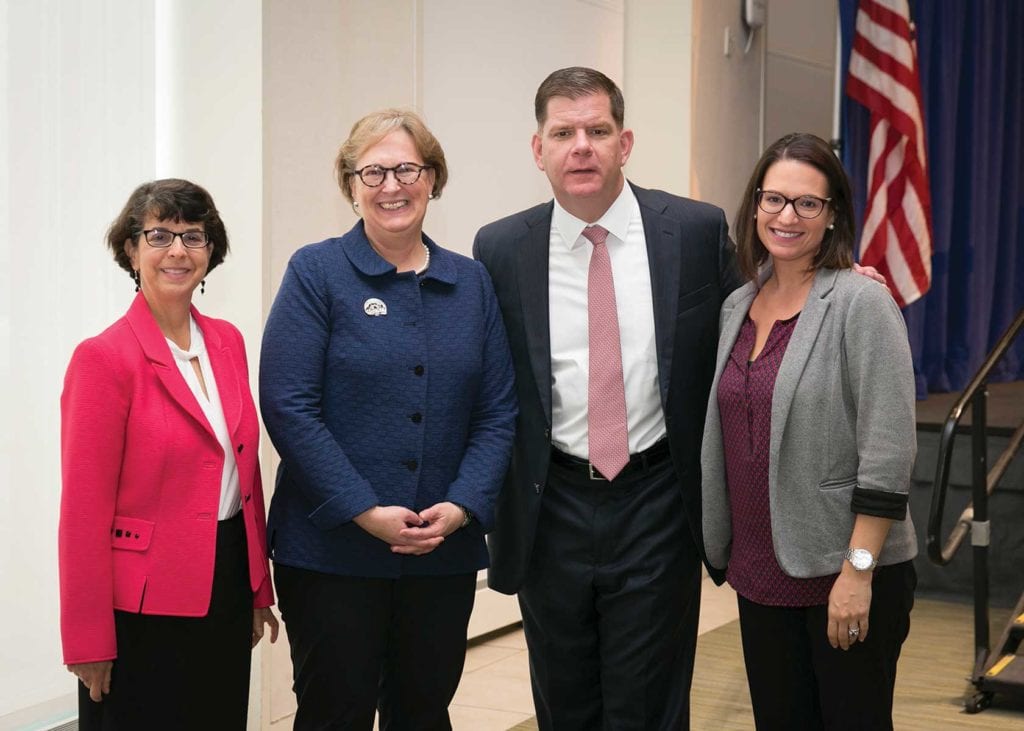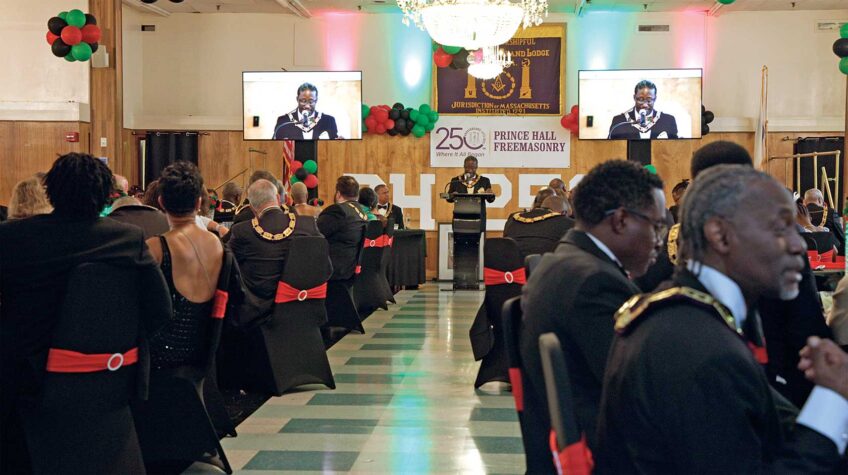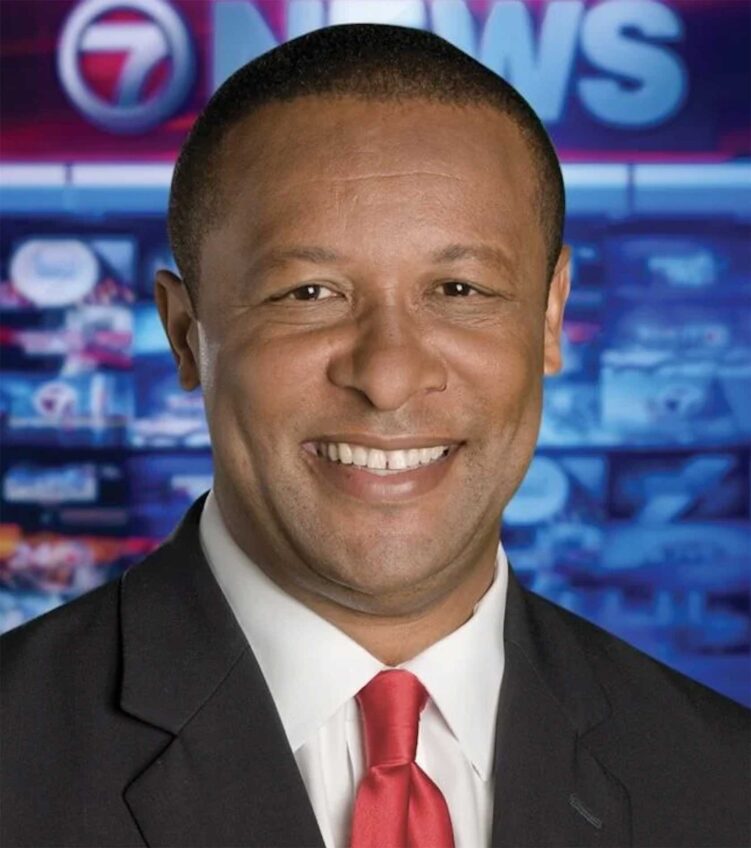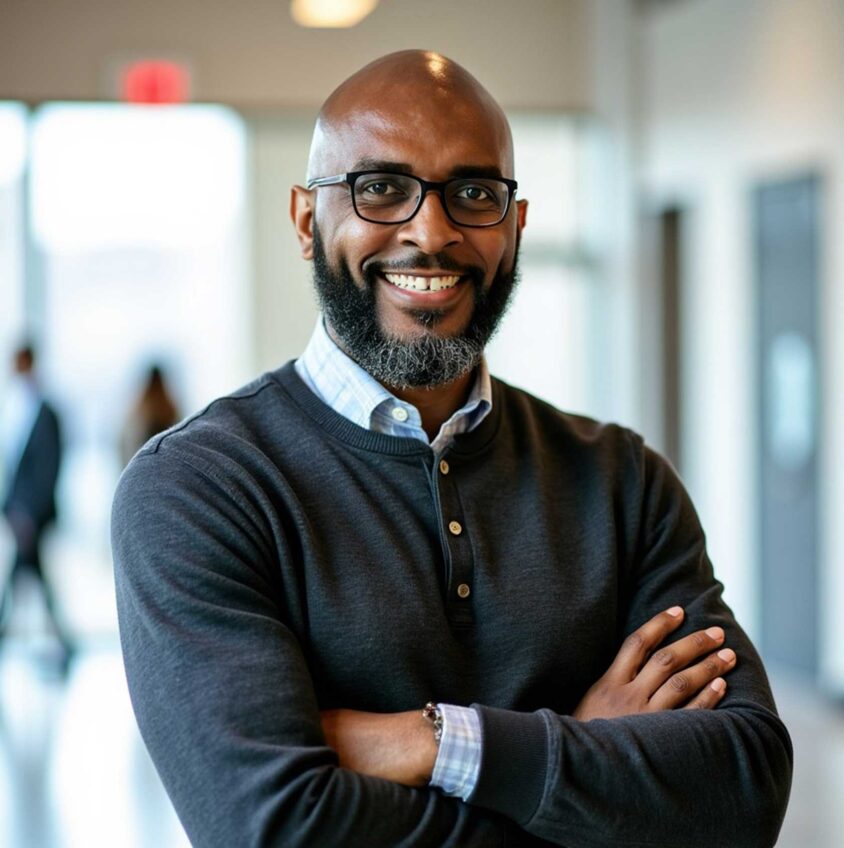Conference aimed at disrupting poverty
Anti-poverty advocates discuss ways to break down harmful stereotypes

Mayor Martin Walsh said the City of Boston is encouraging a comeback for the middle class and that economic access for African-American and Latino communities remains a priority, during the second day of a national anti-poverty conference held last Friday at the University of Massachusetts’ Boston campus.
“Disrupting the Poverty Cycle Conference” a two-day event that began Thursday, Nov. 1, was organized by Economic Mobility Pathways (EMPath) sponsored by The Boston Foundation, and drew more than 350 guests from 28 states and six countries. They were joined by the mayor and expert-author on economic mobility Chuck Collins in a session to discuss ways in which stereotypes about poverty can be eliminated and public discourse reshaped.
“Boston is a city that’s world class because it works for the middle class,” said Walsh, repeating a phrase he used during his inauguration ceremony last year. “Those can’t be words in a speech,” he added. “We have to make sure our cities across America are working for the middle class and we have to make sure we’re helping people get into that middle class.”
Expanding the youth summer jobs program, financing free community college education for low-income students, establishing Boston Builds, an educational program that supports first-time homebuyers, and setting a goal in the Office of Workforce Development to place 20,000 residents in well-paying jobs by 2020 are just some of the ways Walsh said his administration has helped grow Boston’s middle class.
“All of the programs that we do are evidenced-based, all of them operate through partnerships and all of them reflect our citywide commitment to moving people of Boston forward,” said Walsh during Friday’s breakfast presentation.
The mayor’s biggest challenge, he admitted, is housing. In the last five years, almost 28,000 new homes have been built in the city. In September, Walsh announced that the city’s housing target set in 2014 would be raised from 53,000 to 69,000 new homes by 2030.
“By the end of this year we’ll have created more affordable homes than in any other four-year period in the City of Boston,” said Walsh.
But subsidized housing is not the only solution, and the mayor said EMPath’s work at the Whittier Street public housing development should serve as an alternative model for supporting residents and helping them achieve the ultimate goal of buying their first home.
Whittier Street is currently undergoing a $30 million redevelopment that will create 92 mixed-income apartments in three buildings, as well as 76 mixed-income homes in Madison Park Village. The entire project is scheduled for completion by 2021. EMPath has coached many of the residents and helped them relocate.
“As a city, we’re making progress,” said Walsh.
A recent report by The Boston Foundation ranked Boston the second-best U.S. city for economic mobility, and the number one city in the country for African Americans aspiring to join the middle class.
“Unfortunately being the best in United States right now is not a high standard to claim success,” said Walsh. “Though black and Latino incomes may be rising, they are significantly lower than their white counterparts, so we’re looking for bigger leverage to move forward.”
The same Boston Foundation report, released last month, revealed that in 2015 the median annual income for white families in Boston was $90,000, while the median income for black families during the same year was $41,200.
“It isn’t just about having a great policy, it isn’t necessarily about being effective advocates,” said Collins, whose keynote presentation followed the mayor’s speech. “We’re up against powerful stories, powerful narratives that justify and hold this poverty and inequality in place.”
Collins, director of the program on inequality and the common good at Washington, D.C.’s Institute for Policy Studies, said that while the median wage has increased 2.5 percent over recent years, “half of the population not shared in the productivity gains since the late ’70s, and that tells us a lot about what we’re living in right now.”
Referring to what he described as “dynastic wealth,” Collins said that the highest levels of income growth over the last decade have occurred in households with an income upwards of $2.5 million a year. Meanwhile, in terms of wealth, one in five households across the country has zero or negative net worth, with one in three African American households having virtually no net worth.
“We’re living in a time of extraordinary, extreme inequalities,” said Collins.
The impact of these inequality, Collins said, was increasingly polarized politics, a lack of social cohesion and little to no opportunity for social mobility.
One way to tackle issues of poverty is to confront the nation’s narrative about wealth, how it is built and maintained, said Collins, who urged conference participants to “tell true stories of how advantage works.”
Raised in a suburb of Detroit in a wealthy family of German-immigrant descent who made their fortune in the meatpacking industry, Collins said, “I grew up in a bubble, a bubble of advantage, privilege, of wealth.” His experiences and personal journey have shown him the power of what he called “hard-wired privilege” and how the public must recognize its existence before confronting the other issues that surround ingrained poverty in some sections of society.
By changing the discourse in this way, EMPath’s President and CEO Elisabeth Babcock agrees it will be “really powerful in determining how we make a real change in the inequality gap that we have.”
“We see, everywhere, stereotypes that are reinforced in every direction,” said Babcock. “They cause us to have these powerful underlying frameworks about who can do what, who is deserving, who is not. We have to start reshaping these if we’re really going to be changing and leveling the playing field.”






